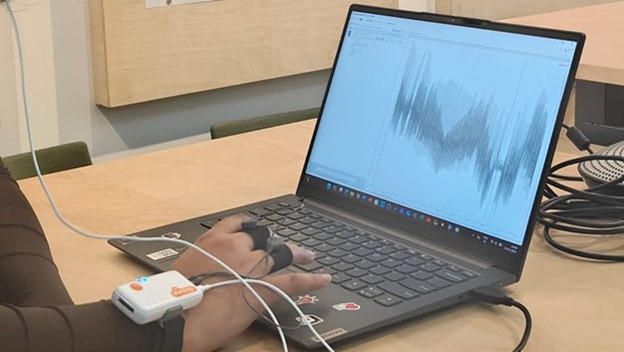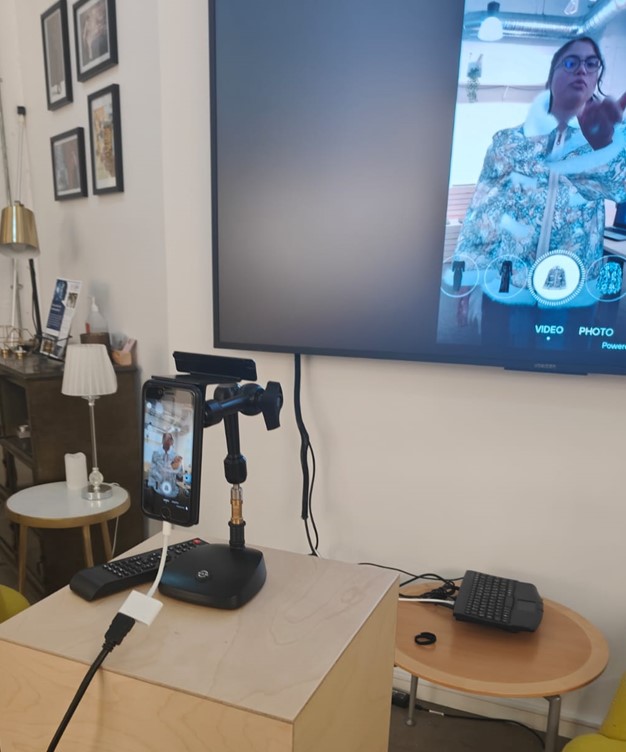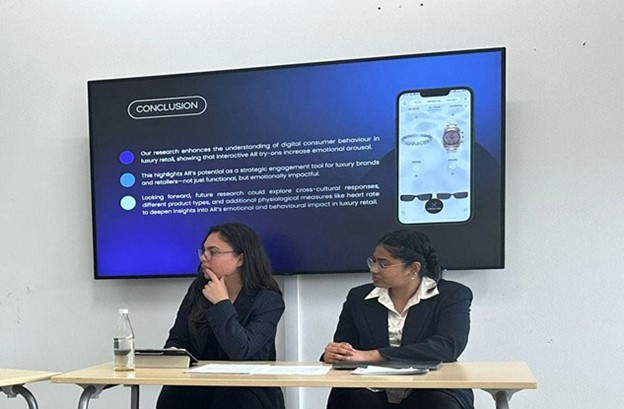Beyond the lens
2025-03-26

This thesis explores the role of Augmented Reality (AR) try-on filters in shaping consumer behaviour within the luxury fashion retail sector, with a focus on emotional arousal, consumer engagement, and purchase intention. As luxury brands increasingly adopt immersive technologies, AR try-on features have emerged as a potentially transformative marketing tool. Current research has often overlooked the emotional and behavioural dimensions of user interaction, particularly within the luxury context. This research addresses this gap by examining how AR affects consumer responses through both affective and physiological perspectives. Drawing upon the Theory of Interactive Media Effects (TIME), the research explores how modality interactivity, defined as the user’s ability to control and manipulate media content, impacts emotional arousal and behavioural engagement. A convergent parallel mixed-methods design was employed to triangulate findings. Participants (n = 45; 23 males, 21 females, 1 non-binary) engaged with full-body AR fashion filters in a semi-controlled laboratory setting.
The experiment collected data via Galvanic Skin Response (GSR), observational notes and semi structured interviews to explore cognitive and affective responses while capturing real-time physiological data.
Findings suggest that AR try-ons create emotionally engaging, playful, and convenient environments that enhance user immersion and self-expression. Our findings lead to the conclusion that AR can endorse consumer-brand relationships and improve purchase intention, provided that the interfaces are both emotionally resonant and visually compelling. The research highlights the value of physiological tools such as GSR in uncovering complex, yet highly relevant user reactions in psychological consumer behaviour research. Practical implications include tailoring AR tools to personal styling preferences and balancing immersive features with brand aesthetics to drive consumer interest and potentially increase conversion.


Project details
Title: Beyond the Lens: Seeing is Feeling Consumer Behaviour through Augmented Reality in Luxury Fashion Retail
Tagline: Are you ready to step into the future of luxury fashion?
Year: 2025
Authors: Irene Maria James, Fyona Jade Keren Robert
Course: Thesis for Two-Year Master, Textile Management
Program: Masters in Fashion Management and Marketing
Supervisor: Lars Hedegård
Technology: The Shimmer3 GSR+ was used for the thesis which was used to measure physiological data. The Shimmer3 GSR+ unit measures skin conductance between two residual electrodes attached to two fingers on one hand. Emotional arousal leads to a sweat reaction, which by its level of indication is measured through the small electrical current applied to the skin. GSR measures the electrical conductance of the skin, which varies with its moisture level. When an individual is emotionally aroused, their sweat glands become more active, increasing skin conductance
Irene Maria James, Fyona Jade Keren Robert

